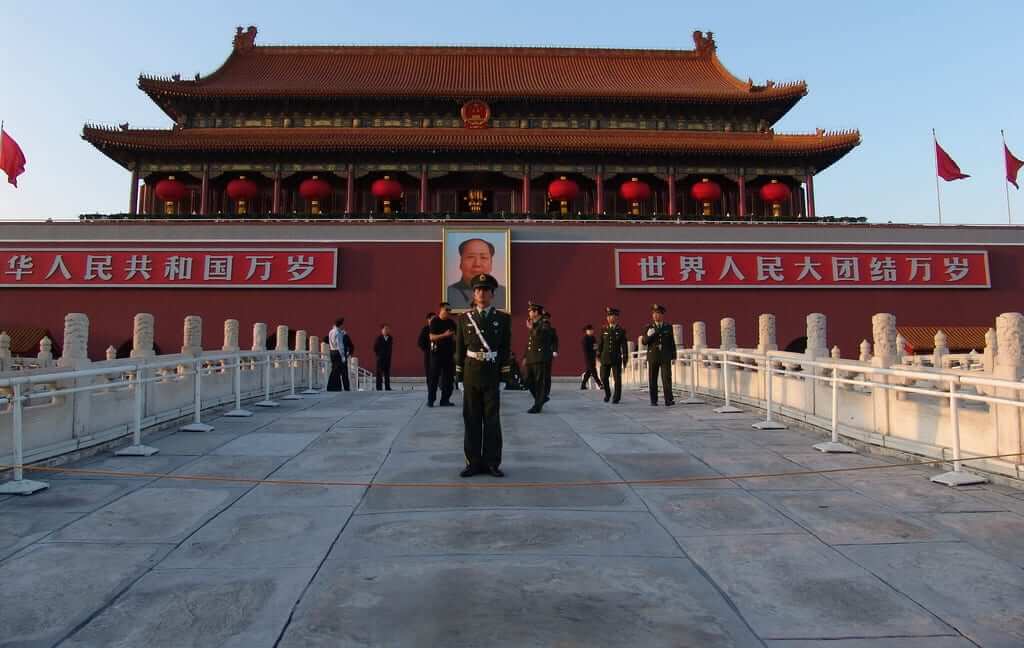Chinese entrepreneurs are leaving China. According a survey, conducted by China Merchants Bank and Bain & Co., 27% of entrepreneurs worth over 100 million RMB have already emigrated and 47% of them are considering moving abroad.
The growing trend is nurturing resentment towards wealthy emigrants among Chinese citizens. And the recent exposure of a prominent businesswoman and member of the CPPCC (China’s political advisory body) Zhang Lan’s immigration further triggered controversy in Chinese society.
Economic insecurity
Chinese Entrepreneur Magazine analyzed(video below):
Zhang Lan’s emigration triggered controversy in Chinese society. Screen capture from local news-report via Youku.
Chinese entrepreneurs all suffer from a lack of security. Once they emigrate to another economic system, they will be provided with new opportunities independent of the Chinese economy. The diversity lowers their risk compared to doing business only in one country(China) where policies can be unstable. Overall, it helps to enhance their sense of security.
ifeng.com, a prominent Chinese newspaper, shared similar opinion:
Honestly, Chinese society doesn’t provide citizens with a sense of security. Average citizens may think rich people feel safe because they don’t need to worry about social welfare; however, rich people in China feel even less safe. Recently, one of China’s richest men Liang Wengen said his property and life belong to the country and that the Party members’ wives are more beautiful. It seems a stupid thing to say, but it reveals his fear. How can an entrepreneur make such a statement about his property? Any entrepreneur knows clear property rights are essential for doing business.
Rigid Rules for Chinese Enterprises
Huang Song, Secretary-General of Finance Industry and Development Research Center of Peking University pointed out a neglected reason behind the immigration:
There are many reasons why entrepreneurs choose to emigrate. Public opinion is usually concerned with two reasons: first, they do not have confidence in China’s future; second, they are trying to escape from something illegal they have done. But there’s a very important reason often ignored, that is, the large number of government restrictions and barriers to overseas investment and financing. First, due to the control of foreign exchange under the capital account, overseas investment by Chinese enterprises need to be approved by the Foreign Exchange Management Department. And although the investment polices have become more relaxed than the past, there are still a lot of limitations and financial investment is still strictly managed. Second, overseas investment has to be approved by the Development and Reform Department, which brings a lot of uncertainty to projects.
China’s financial system essentially only supports state-owned enterprises and large enterprises. For private enterprises and small and medium-sized enterprises there exist difficulties in financing: it’s difficult to get loans, and even more difficult to go public or issue bonds.
Yang Yongmin, GM of Offshore Incorporations Group Beijing Office echoed:
I’m not surprised that Zhang Lan emigrated to that Caribbean island. People who have a little knowledge about Chinese private companies know that it has nothing to do with whether Zhang loves the country or not. It’s because it’s easier for the company to go public overseas. There are so many stupid policies in China that inconvenience Chinese themselves and benefit foreign countries.
People’s Daily published a commentary suggesting following the Americans by implementing heavier taxes on rich entrepreneurs to prevent them from emigrating, the piece soon triggered netizens’ disagreement. Famous TV show host Meng Fei criticized:
This thinking is in the wrong direction. How many rich Americans choose to give up their nationality? What we need to consider is why so many officials, celebrities, rich people and famous scholars want to emigrate, not how to prevent them from doing so. If we don’t reflect on this problem, we can never keep them no matter how strict the rules might be.
Zhi Qiangli echoed:
Zhang Lan’s emigration is a slap in the face to the rigid system.
Also, there are a lot of rules and policies that make it difficult for Chinese private companies to go public but foreign enterprises are exempt from these policies. Perhaps chief editor of Workers’ Daily Shi shusi’s words bestsummarized the problems China needs to tackle in the next decade:
The controversy continues, patriotism aside; the result is a black comedy. As the boss of a private company, she couldn’t make her companies go public in China due to strict rules and difficulties with financing [esp. for restaurant chain business]; however, now that she has emigrated, she stands a better chance of taking her company public. Of course, the outcome is not perfect for China, but who’s responsible for this? The huge emigration trend is just a sign of China’s economic problems. Instead of blaming entrepreneurs, why don’t we promote the formation of consensus for reform and call for more respect for personal property rights, the rule of law and establishment of a just market environment in China?






























